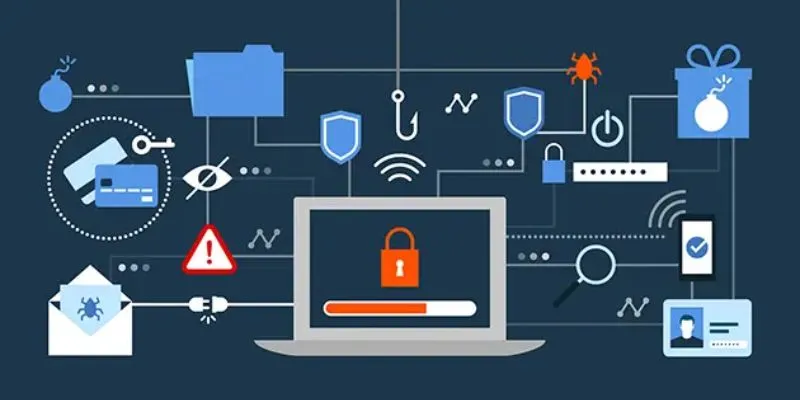 In today’s digital age, the internet is vast and layered, with many areas beyond what most of us use daily. One of these layers is the dark web—a hidden part of the internet that operates differently from the websites we’re familiar with. If you’re considering a Cyber Security Course in Bangalore, understanding the dark web and its associated threats is essential. This blog will provide insights into what the dark web is, how it functions, and the potential risks it poses.
In today’s digital age, the internet is vast and layered, with many areas beyond what most of us use daily. One of these layers is the dark web—a hidden part of the internet that operates differently from the websites we’re familiar with. If you’re considering a Cyber Security Course in Bangalore, understanding the dark web and its associated threats is essential. This blog will provide insights into what the dark web is, how it functions, and the potential risks it poses.
What is the Dark Web?
The dark web is a segment of the internet that isn’t indexed by traditional search engines like Google. Accessing it requires special software, such as Tor (The Onion Router), which ensures anonymity by routing internet traffic through multiple servers worldwide. This encryption and routing process make it difficult to track users’ activities and identities.
While the dark web can be a haven for privacy-seekers like journalists and activists operating in restrictive environments, it is also known for hosting illicit activities. Its anonymity, while useful, also attracts individuals involved in illegal operations.
How Does the Dark Web Work?
To access the dark web, users need specific tools like Tor, which anonymizes their traffic by encrypting it and passing it through various servers. This process, known as onion routing, hides users’ identities and activities. Websites on the dark web often use a .onion domain and are not accessible via standard web browsers.
These dark web sites are frequently hosted on anonymous servers, making it challenging to locate them physically. This environment fosters a space where illegal activities can occur with relative impunity. For those pursuing a Cyber Security Course in Marathahalli, understanding this hidden layer of the internet is crucial for comprehending broader security threats.
Common Threats on the Dark Web
- Illegal Marketplaces: The dark web is notorious for illegal marketplaces where goods such as drugs, stolen data, and weapons are bought and sold. These marketplaces operate discreetly to avoid detection by law enforcement.
- Cybercrime Services: The dark web is also a hub for cybercriminals who offer services like hacking tools, data breaches, and malware development. These services are available for purchase and pose significant threats to cybersecurity.
- Stolen Data: Personal and financial information stolen from data breaches often appears on the dark web. This stolen data can lead to identity theft, financial fraud, and other malicious activities, making it important to understand these risks as part of any Cyber Security Course.
- Extortion and Ransomware: Extortion and ransomware attacks are prevalent on the dark web. Ransomware encrypts victims’ files and demands a ransom for their release. The anonymity of the dark web makes it difficult to trace and stop these cybercriminals.
- Phishing and Fraud: Phishing kits and fraudulent schemes are also common on the dark web. These scams trick individuals into revealing sensitive information through fake websites and deceptive emails.
How to Protect Yourself from Dark Web Threats
- Use Strong, Unique Passwords: Protect your accounts by using strong, unique passwords for each one. Consider using a password manager to keep track of these passwords securely.
- Enable Multi-Factor Authentication (MFA): MFA adds a security layer by requiring a second form of verification, such as a text message or authentication app, and your password.
- Monitor Your Accounts Regularly: Keep an eye on your financial and online accounts for any unusual activity. Setting up alerts for suspicious transactions can help you detect issues early.
- Be Cautious of Phishing Scams: Be wary of emails and messages from unknown sources. Avoid clicking on suspicious links or downloading attachments that could compromise your security.
- Use Reputable Security Software: Ensure your antivirus and anti-malware software are up-to-date to protect against potential threats.
- Stay Informed: Keeping up with the latest cybersecurity news and trends is essential. Awareness of current threats can help you better protect yourself and your information.
The dark web represents a hidden and often misunderstood part of the internet. While it can offer privacy for individuals in restrictive environments, it also hosts a variety of illegal activities and cyber threats. For those pursuing a Training Institute in Bangalore, gaining a solid understanding of the dark web and its risks is crucial. By adopting strong cybersecurity practices and staying informed, you can protect yourself from the dangers lurking in this obscure corner of the web.
Also Check: Cyber Security Interview Questions and Answers
